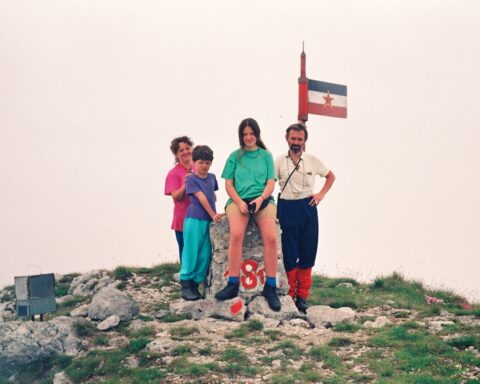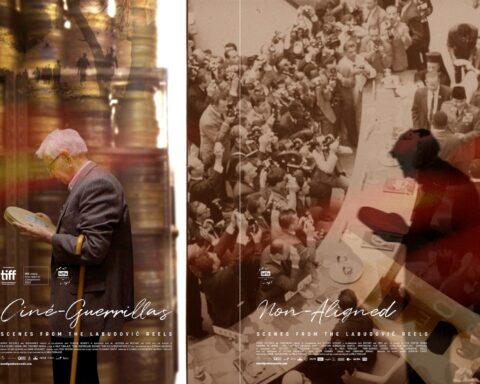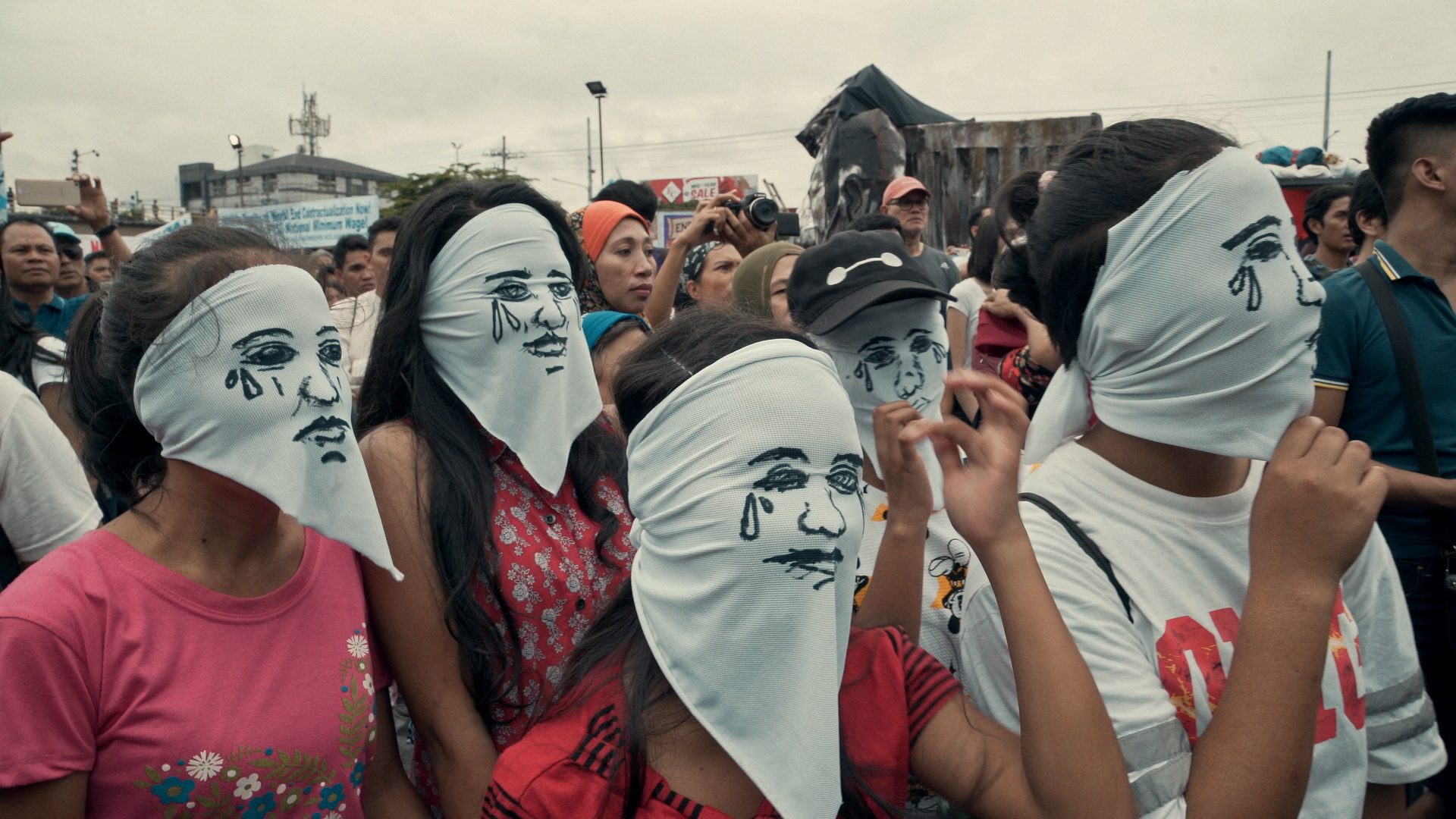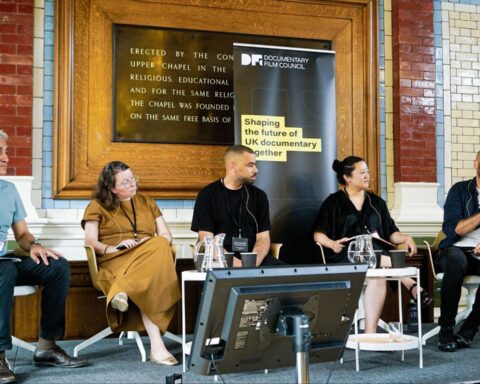Why are villains so fascinating? Why are they often the most memorable characters of the movies we watch? Why do we like them so much? I believe that an interesting answer can be found by reading the first line of Lev Tolstoy’s novel Anna Karenina, which says: “All happy families are alike; each unhappy family is unhappy in its own way”. The sentence highlights that contented families are essentially similar to each other due to their peaceful, predictable nature; on the contrary, troubled ones present a great variety of internal and external conflicts, which make them appealing for the viewers and can easily establish strong empathic bonds. In the year of Joker’s triumph at the Lido, the International Documentary Film Festival Amsterdam (IDFA), one of the world’s largest documentary events and Europe’s most important gathering of its kind, offered viewers a wonderful dedicated strand of antiheroes.
Entitled The Villain, it comprised ten feature-length movies displaying a great variety of evil masterminds and “bad guys” (and girls, of course). As stated by The Hollywood Reporter and Sight and Sound journalist Neil Young in his opinion piece published on IDFA’s official website, the purpose of this section is to “capture an intimate, sometimes terrifying confrontation between filmmaker and protagonist, showcasing a wide array of personifications and various strategies for getting behind the scenes of the criminal persona.” But there is more than that; The Villain is a long journey through evil and its many manifestations, across time and space, during which viewers’ ideas of justice and guilt are constantly being challenged and new, unexpected moral questions may arise.
The IDFA focus opened with a screening of Barbet Schroeder’s General Idi Amin Dada: A Self Portrait. The French documentary, released in 1974, revolves around the Ugandan dictator and has a quite turbulent production story. In the early 1970s, the Swiss director asked Amin to make a movie about his life and, surprisingly, the tyrant accepted his proposal and found it a great opportunity to make a propaganda piece. It is a peculiar kind of “self-portrait” as many of the scenes were “directed” and staged for Amin’s own benefit; in addition, his influence went beyond the filming phase as the documentary’s full version could be released only after his death. The movie is a remarkable work about a personality cult and, commendably, shows the embarrassing side of despotism; in this respect, I can recall the bizarre telegram sent to Tanzanian ruler Julius Nyerere and his delirious interview about his plans to invade Israel, just to cite a couple of examples.
The screening of Schroeder’s documentary was followed by that of Gianfranco Rosi’s El Sicario, Room 164 (2010), winner of multiple awards at Venice, Rotterdam, Lisboa, Tel Aviv and Vienna, among others. Rosi’s movie is a shocking account of an undisclosed Mexican hit man working for a drug cartel. In detail, the criminal describes the mechanisms of his organization and the diverse methods of torture with surgical precision; it is a terrifying testimony, where dehumanization and cruelty play a central role.
The third film of this strand, Alexis Delgado Búrdalo’s This Film Is About Me (2019), focuses on Renata, a woman convicted of homicide. In this intimate, penetrating documentary, the relationship between the filmmaker and the villain is the most interesting cinematic element; Delgado Búrdalo tries to form a connection with Renata and, through their various meetings at the penitentiary centre, we may notice how glad she is to be the film’s lead character and the magnetic force of her appearance and charisma is in every frame. Thus, her brutal crime becomes a secondary element of the storytelling, which is ruled by Renata’s personality and the continuous interplay between Búrdalo and his subject.
Meanwhile, Omar Amiralay’s The Man With the Golden Soles (2000) is a portrait of business tycoon and former prime minister of Lebanon, Rafik Hariri, who died less than fifteen years ago by a suicide truck bomb hitting his motorcade in Beirut. Hariri, a controversial figure accused of being the man responsible for the country’s widespread corruption, surprisingly allowed Amiralay (leftist and political opponent) to follow him during his time in office. The documentary revolves around the filmmaker’s struggle to delve into his subject’s will and behaviour; throughout the picture, Amiralay sets up several one-on-one interviews during which he tries, cautiously, to question the politician’s actions. It is certainly an unequal battle, which pushes the Syrian helmer to adopt voice-over comment as a tool to report his frustrating experience and build a convincing argument to prove Hariri’s perfidy.
Another notable political figure is at the centre of Alison Klayman’s The Brink (2019), namely former Donald Trump’s chief strategist Steve Bannon. Klayman begins to follow Bannon through the American mid-term elections and documents his recent efforts to unify extreme right forces in a pan-European populist coalition, with the objective of gaining seats in the European Parliament election, which took place in May this year. Characterized by a distinct fly-on-the-wall style, Klayman lets facts and actions speak for themselves; the “villain” Bannon and the other subjects feel how nonthreatening the camera is and, perhaps unconsciously, expose themselves more than they normally would.
Lisette Orozco’s Adriana’s Pact, released two years ago, centres on the story of a rather unexpected “villain”, namely the filmmaker’s aunt, called Adriana, who decides to visit her from Australia. Following her arrest by Chilean authorities, the director digs into her aunt’s past and finds out that her relative worked for the National Intelligence Directorate (DINA), a secret police force active during Augusto Pinochet’s dictatorship. Initially willing to prove her aunt’s innocence, Orozco soon dis-covers that all of the accusations are true. The documentary is a painful, raw piece during which the filmmaker is forced to acknowledge her aunt’s gruesome crimes; furthermore, its lo-fi aesthetics confers an even more intimate dimension to the movie’s disturbing and puzzling atmospheres.
Lauren Greenfield’s The Kingmaker (2019) also portrays a charismatic, extravagant and controversial character, Imelda Marcos. She was First Lady of the Philippines for over 20 years, during which she and her husband Ferdinand illegally amassed a gigantic personal fortune estimated to account for around 24-30 billion US dollars. Greenfield analyses the complex relationship of this famous female “villain” with money, political power and her country. Throughout the entire narrative arc, the First Lady posits herself as a “mother” of her family, of her people, even of the whole world; however, her bizarre “motherhood” is a direct expression of her endless ego and her power is heavily grounded on corruption and other crimes. In this respect, the closing monologue is emblematic and one of her final sentences about her “motherhood” experience unsettling: “It is more than a fairytale because it is really unbelievable. I gave birth to what I dreamt of,” she tells.
The eighth film of the focus was Mohsen Makhmalbaf’s A Moment of Innocence (1996), which is based on the director’s experience as a teenager when in 1974 he stabbed a policeman at a protest rally and was jailed. The film, banned in Iran for obvious political reasons, shows a dramatization of the real events and is an emotional piece rich of digressions. Following a similar narrative approach to that of Abbas Kiarostami’s Close-Up (1990), Makhmalbaf’s reenactments demonstrate how memories are easily idealized and are imbued with a palpable “sense of immediacy,” inherited from neorealist cinema.
Joshua Oppenheimer’s The Look of Silence (2014) is also set in South-East Asia and follows the path of his award-winning feature The Act of Killing (2012). In this picture, the director continues his investigation of Indonesian mass-killings of 1965-66 and tells the story of a survivor, middle-aged optometrist Adi Rukun. The =documentary is a remarkable act of courage and rebellion, as proved by Rukun’s first written statement, made public in 2016: “I spend days helping people to see better. I hope to do the same thing through this film. I hope to help many people see more clearly what happened during the 1965 Indonesian genocide – a crime often lied about, or buried in silence”. Under the pretense of an eye exam, Rukun meets the perpetrators; none of them regret their actions, but the daughter of one of them seems to be genuinely heartbroken as she finds out about the killings.
The focus on Villains closed with a screening of Errol Morris’s The Fog of War (2003). This Oscar-winning documentary explores the machinations behind the disastrous Vietnam War and its architect, former American Secretary of Defense Robert S. McNamara. The long interview with McNamara, intertwined with archive footage and audio recordings, reveals the statesman’s Machiavellian vision of war, seen as a machine and part of a bigger picture. To learn more about McNamara’s dark past and expand the account provided by Morris’ outstanding documentary, I would strongly recommend reading of the grey eminence’s memoir, In Retrospect: The Tragedy and Lessons of Vietnam.













